冀教版九年级下 Unit 8 Culture Shapes Us Lesson 45 Different Manners课件 (共35张PPT)
文档属性
| 名称 | 冀教版九年级下 Unit 8 Culture Shapes Us Lesson 45 Different Manners课件 (共35张PPT) | 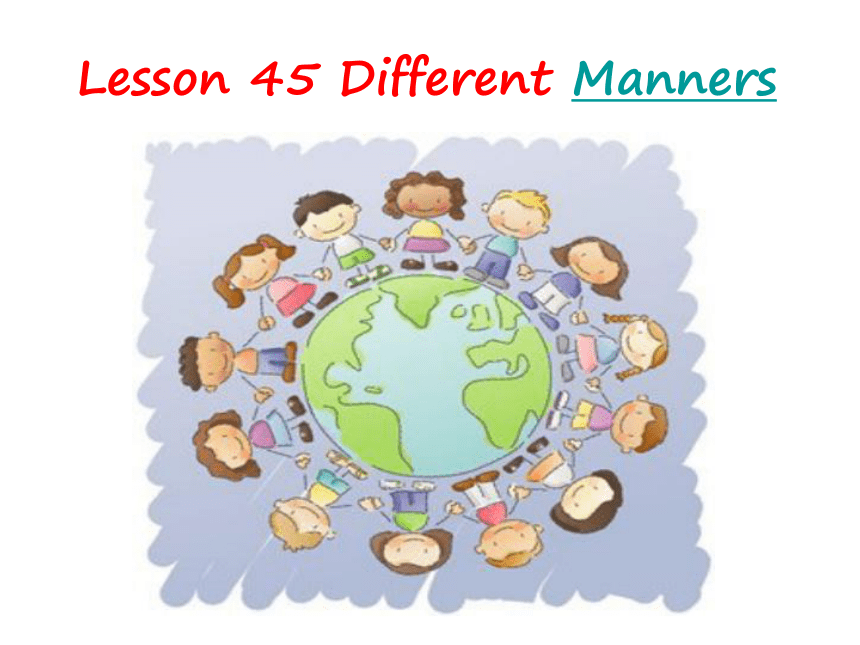 | |
| 格式 | zip | ||
| 文件大小 | 770.8KB | ||
| 资源类型 | 教案 | ||
| 版本资源 | 冀教版 | ||
| 科目 | 英语 | ||
| 更新时间 | 2019-02-22 11:35:29 | ||
图片预览


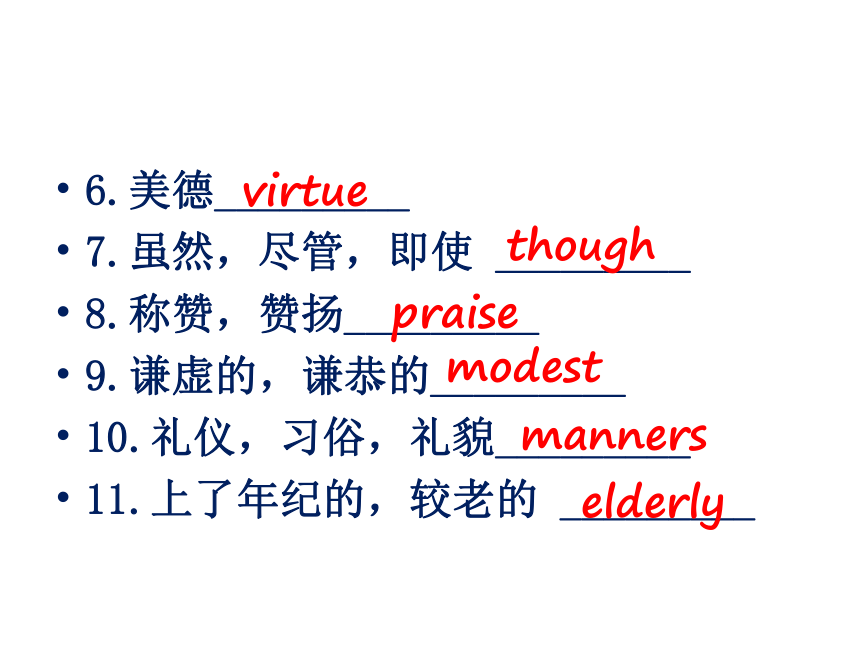


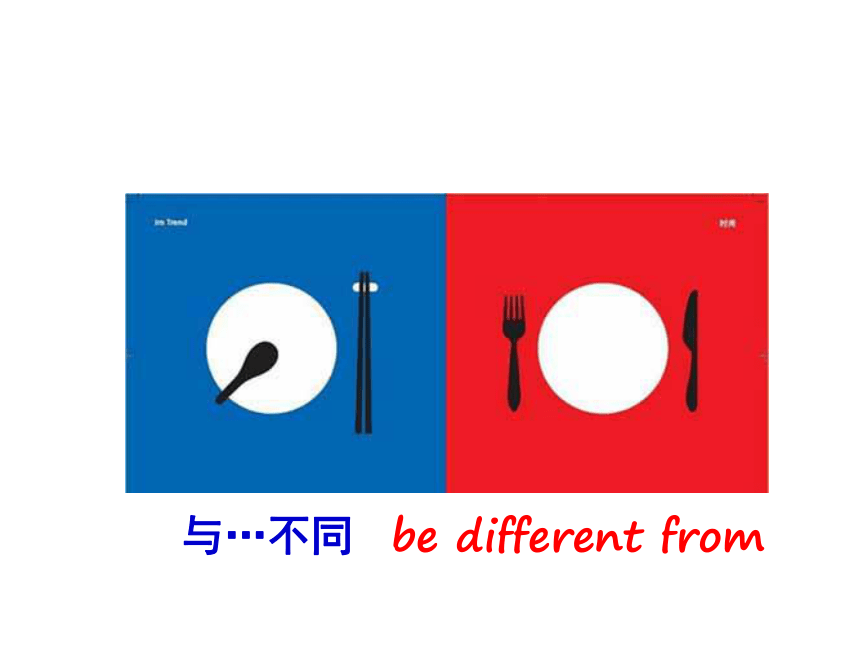
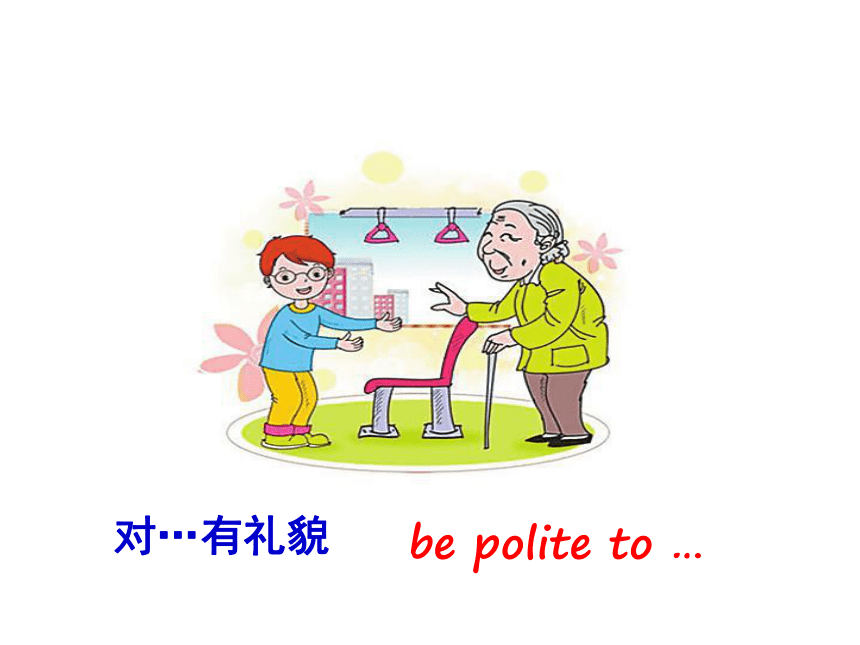
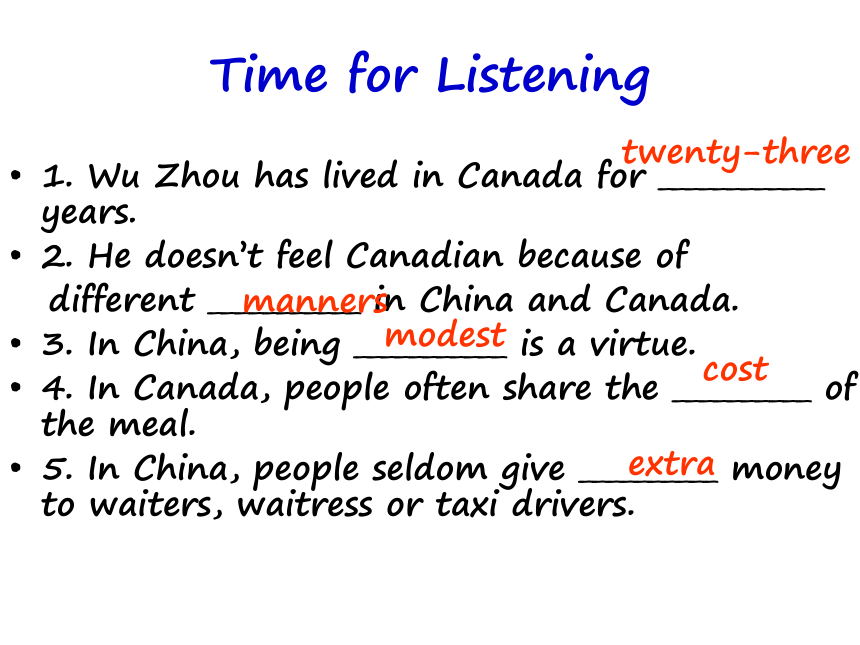
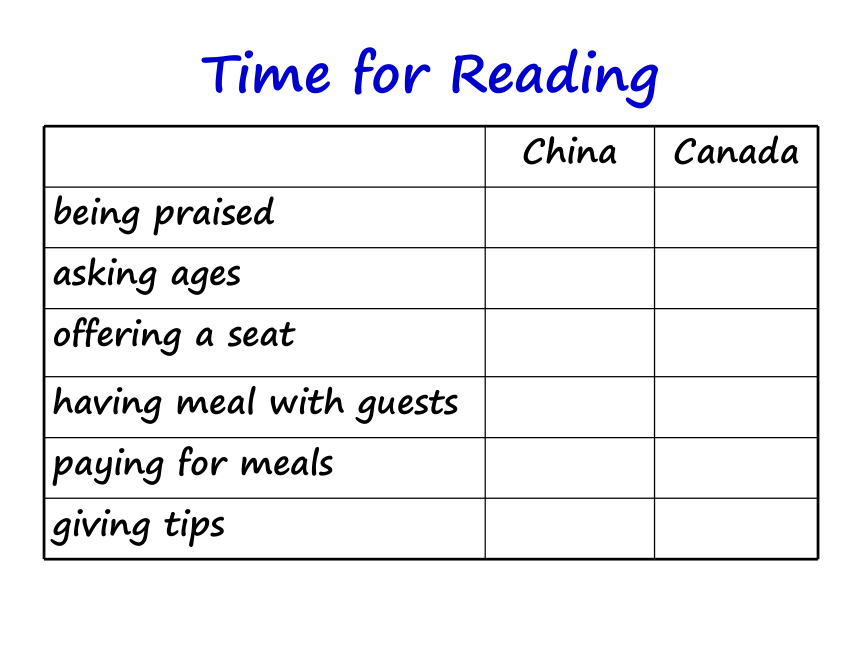
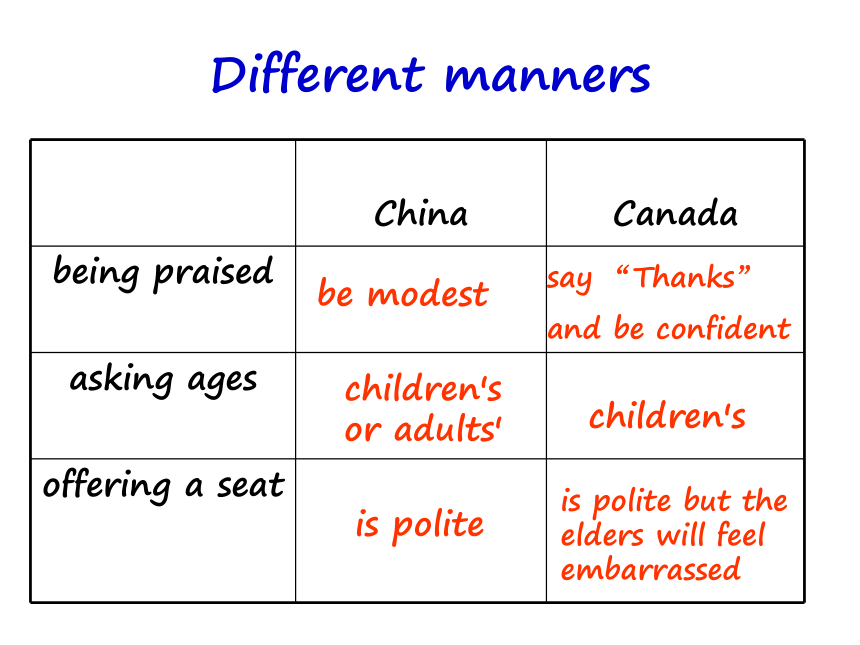
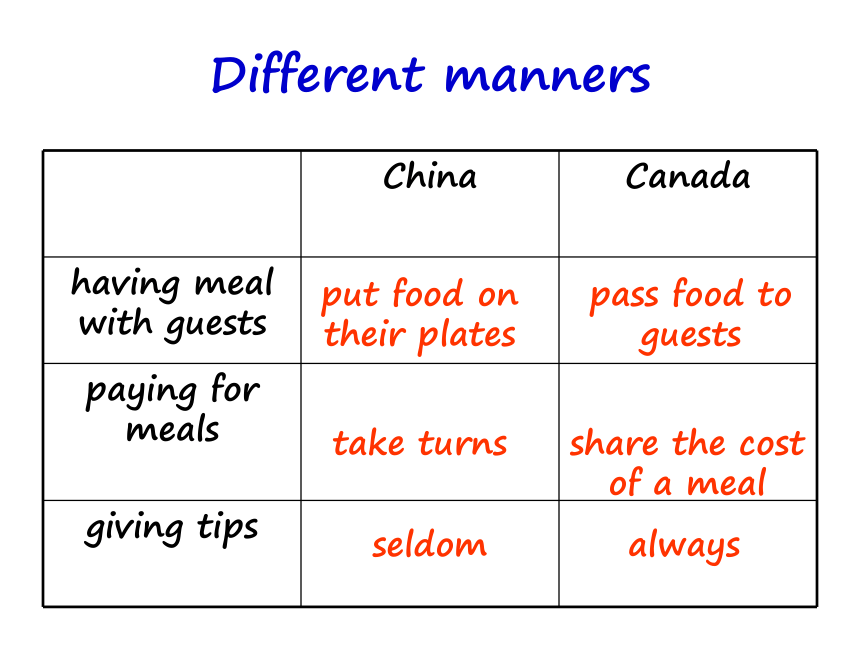
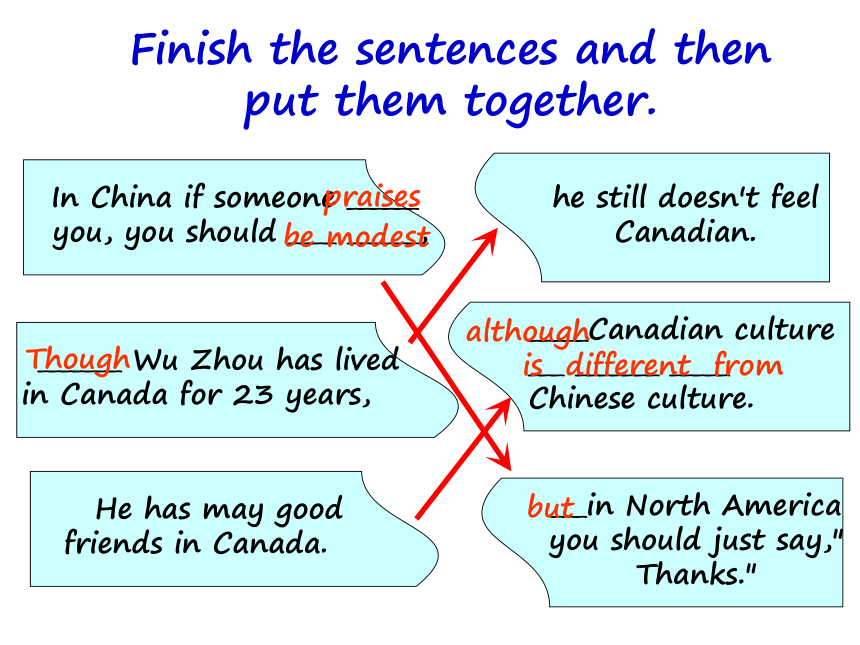
文档简介
课件35张PPT。Lesson 45 Different Manners
Ⅰ.New Words
1.给小费_________
2.男服务员_________
3.客人_________
4.另外的,额外的_________
5.私人的,私有的_______tipwaiterguestextraprivate Preview before class 6.美德_________
7.虽然,尽管,即使 _________
8.称赞,赞扬_________
9.谦虚的,谦恭的_________
10.礼仪,习俗,礼貌_________
11.上了年纪的,较老的 _________ virtuethoughpraisemodestmannerselderly sound like ⅡKey phrases听起来像take turns轮流、依次与…不同be different from对…有礼貌 be polite to …Time for Listening1. Wu Zhou has lived in Canada for ____________ years.
2. He doesn’t feel Canadian because of
different ___________ in China and Canada.
3. In China, being ___________ is a virtue.
4. In Canada, people often share the __________ of the meal.
5. In China, people seldom give __________ money to waiters, waitress or taxi drivers.twenty-three manners modest cost extraTime for Readingbe modestsay “Thanks”
and be confidentchildren's or adults'
children's
is polite
is polite but the elders will feel embarrassedDifferent mannersDifferent mannersput food on their plates
pass food to guests
take turns
share the cost of a mealseldom
always
Finish the sentences and then
put them together.he still doesn't feel
Canadian. In China if someone ______
you, you should ____ ______, _______ Wu Zhou has lived
in Canada for 23 years, He has may good
friends in Canada._____Canadian culture
___ _______ _____
Chinese culture.___in North America
you should just say,"
Thanks."be modestThough although is different frombutpraisesIn Canada, _________,
they may feel
embarrassed. In both China and Canada
it is polite to _______ a seat to
the elderly person on the bus.But in China
it is __________
to ask an adult's age. In Canada people think
age is _________, so they
only ask children about
their ages.privateofferhowevercommon
However, Canadians
often share the cost of
the meal.Chinese people may _____
______ to ___ ___ the meal,
when they are eating in the
restaurant.but this is ______ done
in North America. In China ,if there is no
food on the guest's plate,
it's polite to ____ food __
their plates.but in Canada people
only _____ food __
the guest. In China, people
_______ give
extra money.taketurnspay forput onseldompass to alwaysMatch and complete the sentencesWe should not use “although/though/even though” and “but” together in the same sentences.
Because/so
_______ I got up late, _____ I missed the early bus. Grammar in useBecause / / soPractice in Class
用所给词的适当形式填空。
【tell ;teach ; call ; live; praise】
1.They live in a small town
_______Blue Moon.
2.Danny _____________ by his
teacher for his good work.called was praised
3.What about ______________ them
our new address?
4.He said he _________________ in
this city for ten years.
5.Thank you very much for
________us so well. telling had lived teaching Fill in the blanks with the words or phrases in the box
Talk about more manners you know in China and English-speaking countries.Table manners for childrenWash your hands before sitting down.
Leave toys, books and pets behind.
Sit up straight and wait until everyone is seated.
Ask others to pass the dishes. Never reach across the table.
Never talk with your mouth full of food.
Never play with your food.
Never take food from other people‘s plates.
Say “Excuse me”when leaving the table.
Remember, good manners are important and make meals more enjoyable.
HomeworkHomework
Copy the new words and key sentences neatly.
More manners in China and western countries.
Give us a report about it next time.
I think understanding cultural differences really helps us to understand each other, live together and work together.
我认为了解文化差异确实有助于我们互相理解、共同生活、一起工作。Goodbye
1. Different Manners 各种各样的礼貌manner 的意思是“方式;态度;习惯”。
1) He spoke to me in a proper manner. 他以恰当的方式跟我说话。
2) Her manner showed her anger.
她的态度表现了她的愤怒。
3) He has a lazy manner, so he wouldn‘t like to do the job together with me.
他有懒惰的习惯,所以不想跟我一起干那个活。表示“礼貌,礼仪;风度;规矩;风俗;生活方式”时,要用 manners。例如:
1) If you have no manners, you will not be respected by others.
如果没礼貌, 你就不会受到别人的尊重。
2) Before going abroad, you should learn some foreign manners.
出国前,你应该学些外国礼仪。
3) They don‘t live in the manners
of the old any longer.
他们不再照古人的生活方式过活了。
“Joe”是一个听起来像“周”的英语名字。Joe is an English name that sounds like Zhou.
sound like 的意思是“听起来像”。如:
The man doesn‘t sound like an American.
那人讲话的口音不像美国人。
sound 可作系动词,后跟形容词,表示“听起来…”。
Your idea sounds good.
你的主意听起来很好。
sound 后还可跟 as if 从句。例如:
She sounds as if she were a ten-year-old girl. 她话的声音像个十岁女孩
When Chinese people eat out in restaurants, they may take turns paying for the meal. 中国人到外面餐馆吃饭时,他们可能轮流付账。
take turns 的意思是“依次,轮流”。表达“轮流做某事”可以用 take turns doing sth.,也可以用take turns to do sth.,还可以搭配介词 at, in, on 或about。例如:
They took turns to take care of the old man. 他们轮流照顾那位老人。
The students take turns cleaning the windows.
那几位学生轮流擦窗户。
The workers take turns at the job.
工人们轮流干那个活。
由 and 或 or 连接的并列动词不定式,第二个及其后的动词不定式的 to 可以省略。例如:
I want to call on him and discuss the question again.
我想拜访他,跟他再讨论一下这个问题。
He asked me to telephone or wire to him.
他要我给他打电话或者发电报。
如果两个动词不定式有对比的含义或者不用连词,要保留 to。例如:
I haven't decided to go home or to stay at school this weekend.
我还没决定这个周末是回家还是住在学校。( 对比 )
Traveling and recording memories How to stand in line The boss Elderly in day-to-day lifeNoise level inside a restaurant
Ⅰ.New Words
1.给小费_________
2.男服务员_________
3.客人_________
4.另外的,额外的_________
5.私人的,私有的_______tipwaiterguestextraprivate Preview before class 6.美德_________
7.虽然,尽管,即使 _________
8.称赞,赞扬_________
9.谦虚的,谦恭的_________
10.礼仪,习俗,礼貌_________
11.上了年纪的,较老的 _________ virtuethoughpraisemodestmannerselderly sound like ⅡKey phrases听起来像take turns轮流、依次与…不同be different from对…有礼貌 be polite to …Time for Listening1. Wu Zhou has lived in Canada for ____________ years.
2. He doesn’t feel Canadian because of
different ___________ in China and Canada.
3. In China, being ___________ is a virtue.
4. In Canada, people often share the __________ of the meal.
5. In China, people seldom give __________ money to waiters, waitress or taxi drivers.twenty-three manners modest cost extraTime for Readingbe modestsay “Thanks”
and be confidentchildren's or adults'
children's
is polite
is polite but the elders will feel embarrassedDifferent mannersDifferent mannersput food on their plates
pass food to guests
take turns
share the cost of a mealseldom
always
Finish the sentences and then
put them together.he still doesn't feel
Canadian. In China if someone ______
you, you should ____ ______, _______ Wu Zhou has lived
in Canada for 23 years, He has may good
friends in Canada._____Canadian culture
___ _______ _____
Chinese culture.___in North America
you should just say,"
Thanks."be modestThough although is different frombutpraisesIn Canada, _________,
they may feel
embarrassed. In both China and Canada
it is polite to _______ a seat to
the elderly person on the bus.But in China
it is __________
to ask an adult's age. In Canada people think
age is _________, so they
only ask children about
their ages.privateofferhowevercommon
However, Canadians
often share the cost of
the meal.Chinese people may _____
______ to ___ ___ the meal,
when they are eating in the
restaurant.but this is ______ done
in North America. In China ,if there is no
food on the guest's plate,
it's polite to ____ food __
their plates.but in Canada people
only _____ food __
the guest. In China, people
_______ give
extra money.taketurnspay forput onseldompass to alwaysMatch and complete the sentencesWe should not use “although/though/even though” and “but” together in the same sentences.
Because/so
_______ I got up late, _____ I missed the early bus. Grammar in useBecause / / soPractice in Class
用所给词的适当形式填空。
【tell ;teach ; call ; live; praise】
1.They live in a small town
_______Blue Moon.
2.Danny _____________ by his
teacher for his good work.called was praised
3.What about ______________ them
our new address?
4.He said he _________________ in
this city for ten years.
5.Thank you very much for
________us so well. telling had lived teaching Fill in the blanks with the words or phrases in the box
Talk about more manners you know in China and English-speaking countries.Table manners for childrenWash your hands before sitting down.
Leave toys, books and pets behind.
Sit up straight and wait until everyone is seated.
Ask others to pass the dishes. Never reach across the table.
Never talk with your mouth full of food.
Never play with your food.
Never take food from other people‘s plates.
Say “Excuse me”when leaving the table.
Remember, good manners are important and make meals more enjoyable.
HomeworkHomework
Copy the new words and key sentences neatly.
More manners in China and western countries.
Give us a report about it next time.
I think understanding cultural differences really helps us to understand each other, live together and work together.
我认为了解文化差异确实有助于我们互相理解、共同生活、一起工作。Goodbye
1. Different Manners 各种各样的礼貌manner 的意思是“方式;态度;习惯”。
1) He spoke to me in a proper manner. 他以恰当的方式跟我说话。
2) Her manner showed her anger.
她的态度表现了她的愤怒。
3) He has a lazy manner, so he wouldn‘t like to do the job together with me.
他有懒惰的习惯,所以不想跟我一起干那个活。表示“礼貌,礼仪;风度;规矩;风俗;生活方式”时,要用 manners。例如:
1) If you have no manners, you will not be respected by others.
如果没礼貌, 你就不会受到别人的尊重。
2) Before going abroad, you should learn some foreign manners.
出国前,你应该学些外国礼仪。
3) They don‘t live in the manners
of the old any longer.
他们不再照古人的生活方式过活了。
“Joe”是一个听起来像“周”的英语名字。Joe is an English name that sounds like Zhou.
sound like 的意思是“听起来像”。如:
The man doesn‘t sound like an American.
那人讲话的口音不像美国人。
sound 可作系动词,后跟形容词,表示“听起来…”。
Your idea sounds good.
你的主意听起来很好。
sound 后还可跟 as if 从句。例如:
She sounds as if she were a ten-year-old girl. 她话的声音像个十岁女孩
When Chinese people eat out in restaurants, they may take turns paying for the meal. 中国人到外面餐馆吃饭时,他们可能轮流付账。
take turns 的意思是“依次,轮流”。表达“轮流做某事”可以用 take turns doing sth.,也可以用take turns to do sth.,还可以搭配介词 at, in, on 或about。例如:
They took turns to take care of the old man. 他们轮流照顾那位老人。
The students take turns cleaning the windows.
那几位学生轮流擦窗户。
The workers take turns at the job.
工人们轮流干那个活。
由 and 或 or 连接的并列动词不定式,第二个及其后的动词不定式的 to 可以省略。例如:
I want to call on him and discuss the question again.
我想拜访他,跟他再讨论一下这个问题。
He asked me to telephone or wire to him.
他要我给他打电话或者发电报。
如果两个动词不定式有对比的含义或者不用连词,要保留 to。例如:
I haven't decided to go home or to stay at school this weekend.
我还没决定这个周末是回家还是住在学校。( 对比 )
Traveling and recording memories How to stand in line The boss Elderly in day-to-day lifeNoise level inside a restaurant
同课章节目录
- Unit 7 Work for Peace
- Lesson 37 Don't Fight!
- Lesson 38 Making School a Better Place
- Lesson 39 The Dove and the Olive Branch
- Lesson 40 The UN—Power of Words
- Lesson 41 Jenny's Good Advice
- Lesson 42 Peace at Last
- Unit Review
- Unit 8 Culture Shapes Us
- Lesson 43 A Visit to Chinatown
- Lesson 44 Popular Sayings
- Lesson 45 Different Manners
- Lesson 46 Home to Many Cultures
- Lesson 47 Good Manners
- Lesson 48 Supper with the Bradshaws
- Unit Review
- Unit 9 Communication
- Lesson 49 Get Along with Others
- Lesson 50 Tips for Good Communication
- Lesson 51 What Could Be Wrong?
- Lesson 52 The Power of a Smile
- Lesson 53 Working in Groups
- Lesson 54 How Embarrassing!
- Unit Review
- Unit 10 Get Ready for the Future
- Lesson 55 Look into the Future
- Lesson 56 Manage Your Time
- Lesson 57 Best Wishes
- Lesson 58 Ms.Liu's Speech
- Lesson 59 Keep Your Choices Open
- Lesson 60 Get a Good Education
- Unit Review
